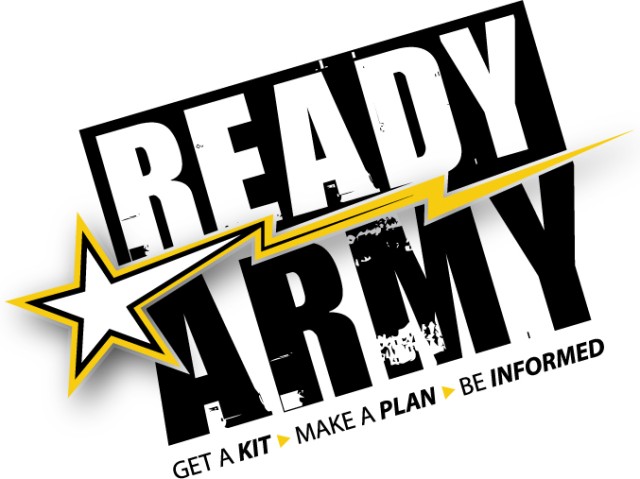ROCK ISLAND ARSENAL, Ill. -- Who isn't pinching pennies these days' In fact, many of us have been putting things off in order to save money. One thing you shouldn't put off, though, is becoming prepared for emergencies and disasters. As difficult as it may be financially, it's something you just can't turn away from.
September is National Preparedness Month, and in consideration of the many of us who are tightly budgeting our dollars, here are a few tips to save money and still be "Ready."
1. Plan for the types of disasters that can happen in the area where you live. You may need to plan for a snowstorm instead of a hurricane.
2. Create your own personalized list. You may not need everything included in "readymade" kits and there may be additional items you need based on your personal situation. For example, if you have pets, you may need special items. Don't forget to have supplies in your car and at work.
3. Budget emergency preparedness items as a "normal" expense. Even $20 a month can go a long way to helping you be ready. Buy one preparedness item each time you go to the grocery store.
4. Save by shopping sales. Make use of coupons and shop at stores with used goods. Don't replace your ready kit items annually, just replace and cycle through those items that have a shelf life (e.g., batteries, food). You may want to test the radio and flashlight every September to make sure they are in good working order.
5. Store water in safe containers. You don't have to buy more expensive bottled water, but make sure any containers you use for water storage are safe and disinfected.
6. Request preparedness items as gifts. We all receive gifts we don't need or use. What if your friends and family members gave you gifts that could save your life' Don't forget to protect them by sending preparedness gifts their way, too.
7. Think ahead. You are more likely to save money if you can take your time with focused and strategic shopping. It's when everyone is at the store right before a storm hits that prices are going to be higher. Use a list to avoid duplicating items when you are stressed or panicked.
8. Review your insurance policy annually and make necessary changes. When a disaster strikes, you want to know that your coverage will help you get back on your feet. Renters need policies too, in order to cover personal property.
9. Update contact records. Have an accurate phone list of emergency contact numbers. If you are prepared, you may be able to help friends and neighbors who need assistance. By sharing preparedness supplies, you can help each other.
10. Trade one night out to fund your 72-hour kit. Taking a family of four to the movies can cost upwards of $80-$100. Just one night of sacrifice could fund a 72-hour ready kit.
Above all, start now, take small steps, and before you know it, you will be "Ready."


Social Sharing